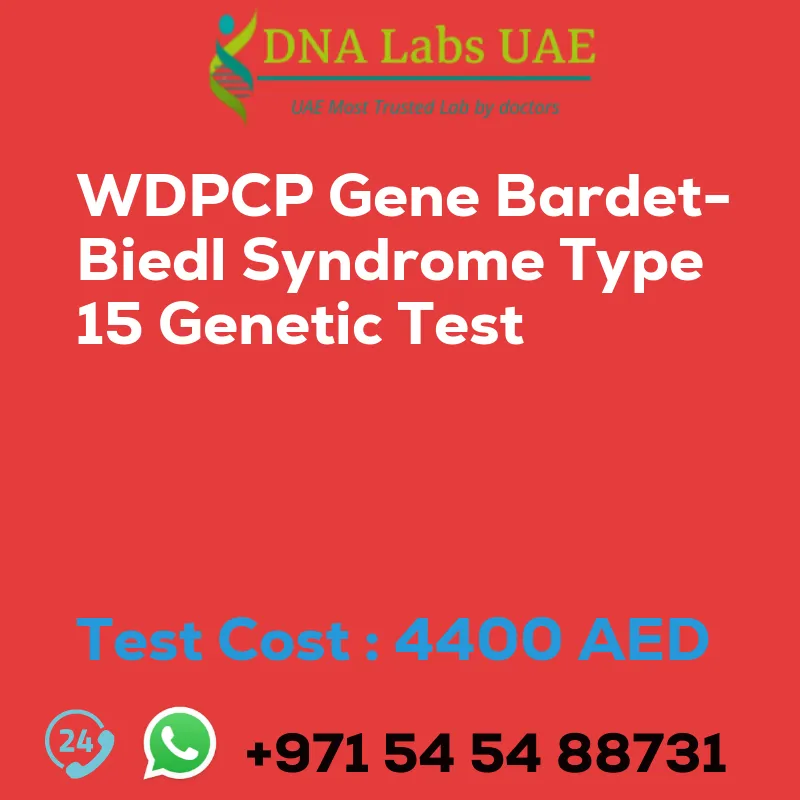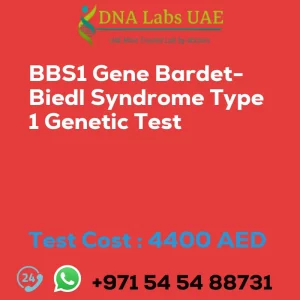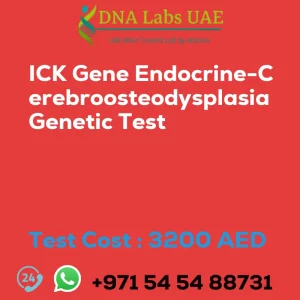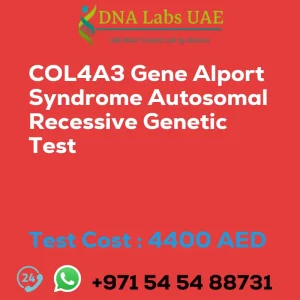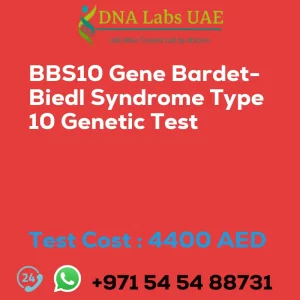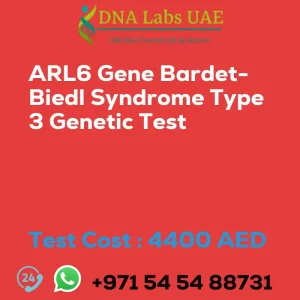WDPCP Gene Bardet-Biedl Syndrome Type 15 Genetic Test
At DNA Labs UAE, we offer the WDPCP Gene Bardet-Biedl Syndrome Type 15 Genetic Test. This test is designed to identify mutations in the WDPCP gene, which is associated with Bardet-Biedl syndrome type 15. Bardet-Biedl syndrome is a rare genetic disorder characterized by a combination of symptoms such as obesity, vision loss, kidney abnormalities, intellectual disability, and extra fingers or toes.
Test Details
The WDPCP Gene Bardet-Biedl Syndrome Type 15 Genetic Test is performed using Next-Generation Sequencing (NGS) technology. NGS genetic testing allows for the analysis of multiple genes simultaneously, enabling the detection of genetic variations or changes in the DNA sequence.
Components and Price
The cost of the WDPCP Gene Bardet-Biedl Syndrome Type 15 Genetic Test is 4400.0 AED. The test can be conducted using a sample of blood, extracted DNA, or one drop of blood on an FTA card.
Report Delivery
After the sample is collected, the report will be delivered within 3 to 4 weeks.
Test Type and Doctor
The WDPCP Gene Bardet-Biedl Syndrome Type 15 Genetic Test falls under the category of Hepatology, Nephrology, and Endocrinology Disorders. It is recommended to consult with a General Physician before undergoing the test.
Test Department
The WDPCP Gene Bardet-Biedl Syndrome Type 15 Genetic Test is conducted in our Genetics department.
Pre Test Information
Prior to the test, it is important to provide the clinical history of the patient who will be undergoing the WDPCP Gene Bardet-Biedl Syndrome Type 15 NGS Genetic DNA Test. Additionally, a Genetic Counselling session will be conducted to draw a pedigree chart of family members affected by WDPCP Gene Bardet-Biedl Syndrome Type 15.
During the test, the gene WDPCP will be analyzed to identify any mutations associated with Bardet-Biedl Syndrome Type 15. The NGS technology allows for accurate and efficient sequencing of the DNA sample.
It is crucial to note that genetic testing for Bardet-Biedl Syndrome Type 15 should be performed in a clinical setting with the involvement of healthcare professionals, such as genetic counselors or geneticists. These professionals will interpret the results and provide appropriate counseling and guidance.
| Test Name | WDPCP Gene Bardet-Biedl syndrome type 15 Genetic Test |
|---|---|
| Components | |
| Price | 4400.0 AED |
| Sample Condition | Blood or Extracted DNA or One drop Blood on FTA Card |
| Report Delivery | 3 to 4 Weeks |
| Method | NGS Technology |
| Test type | Hepatology Nephrology Endocrinology Disorders |
| Doctor | General Physician |
| Test Department: | Genetics |
| Pre Test Information | Clinical History of Patient who is going for WDPCP Gene Bardet-Biedl syndrome type 15 NGS Genetic DNA Test. A Genetic Counselling session to draw a pedigree chart of family members affected with WDPCP Gene Bardet-Biedl syndrome type 15 NGS Genetic DNA Test gene WDPCP |
| Test Details |
The WDPCP gene is associated with Bardet-Biedl syndrome type 15. Bardet-Biedl syndrome is a rare genetic disorder characterized by a combination of symptoms that can include obesity, vision loss, kidney abnormalities, intellectual disability, and extra fingers or toes. NGS (Next-Generation Sequencing) genetic testing is a method used to analyze multiple genes simultaneously. It allows for the detection of genetic variations, such as mutations or changes, in the DNA sequence. In the context of Bardet-Biedl syndrome type 15, NGS genetic testing can be used to identify mutations in the WDPCP gene, which can help confirm a diagnosis of this specific subtype of Bardet-Biedl syndrome. Genetic testing for Bardet-Biedl syndrome type 15 can be performed using a sample of DNA, typically obtained through a blood or saliva sample. The DNA is then sequenced using NGS technology, and the resulting data is analyzed to identify any variations in the WDPCP gene. It’s important to note that genetic testing for Bardet-Biedl syndrome type 15 is typically done in a clinical setting and requires the involvement of healthcare professionals, such as genetic counselors or geneticists, who can interpret the results and provide appropriate counseling and guidance. |

